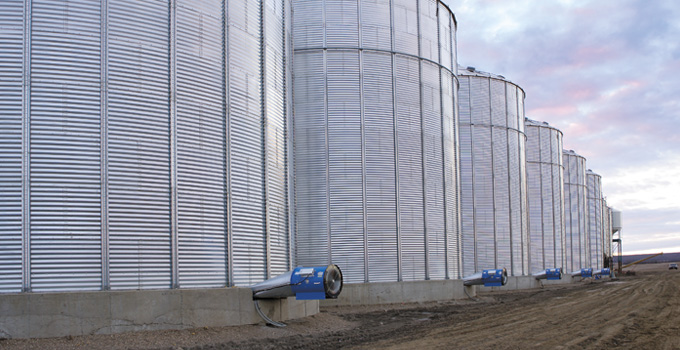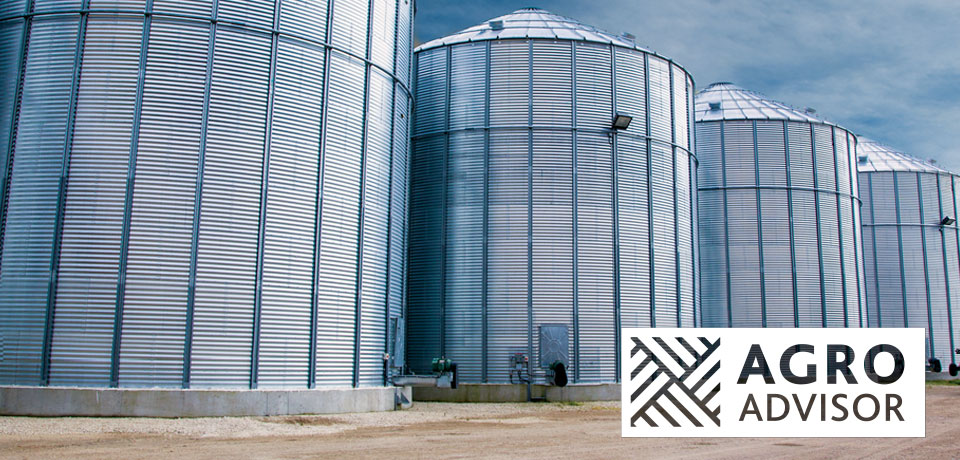Choosing a grain storage system, or combination of systems, for your farm comes down to a lot more than just price.
Whether it’s equipment, setup costs or potential spoilage, there are many factors that can sway a grower from a temporary grain bag to a permanent bin system— or vice versa.
“A lot of times, money isn’t the object. It’s what they really want for their set up,” said Glen Michaliew, Equipment Sales Manager at Central Plains Co-op in Rosetown, Sask., who said for many growers bigger is just better.
“The bigger you go, the less cost per bushel your storage is.”

Bin benefits
While many farmers traditionally relied on hopper bins that store 5,000 and 7,000 bushels of grain, Michaliew is seeing more and more interest in larger options that provide storage for 10,000 and 15,000 bushels all the way up to 25,000 and 50,000 bushels.
In addition to providing safe, long-term storage, larger bins enable growers to save time during and after harvest.
“Growers are going big. They’re trying to get everything in one location,” said Michaliew. “At harvest time, they don’t want to be moving from bin to bin.”
Bags offer mobility
Michaliew only recommends grain bags in situations where growers require short-term storage.
Although they cost less upfront and can be placed in any location, grain bags require the use of both a bagging machine and extractor. Once the grain is sold, you also have to clean up the yard and recycle the plastic. Then there is the threat of damage from moisture, pests and wildlife.
That said, grain bags can be a good fit for growers who:
- Are renting land where the owner isn’t supplying bins.
- Plan to leave the business in the near future.
- Need short-term storage solutions or have excess production.
- Are storing lower-quality grains that don’t require close monitoring.
“If you have your grain contracted and you want to move it quickly within a month or two, bags are the quickest way to do it,” said Michaliew.
Ask the right questions
The needs of every farm are different. Your local Co-op Equip Team can help you weigh the pros and cons of all temporary and permanent storage solutions.
“We work with them closely to figure out what they really need,” said Michaliew.
“Depending on how big they want to get, growers may buy stuff that will end up being too small in the end. We want them to get the best bang for their dollar.”

